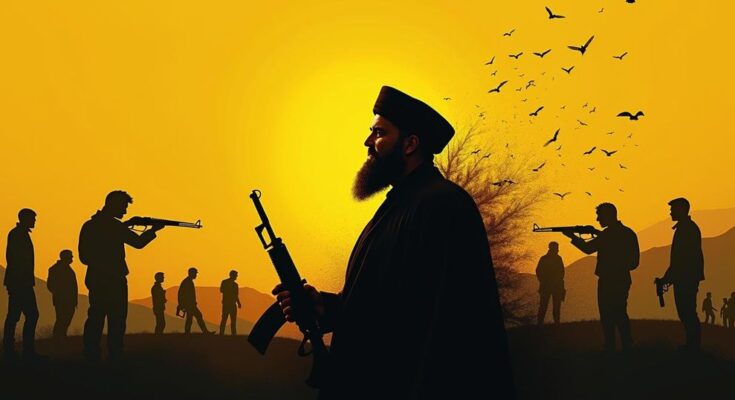Hassan Nasrallah has been the leader of Hezbollah for nearly thirty years, transforming it into a major paramilitary force influencing Middle Eastern politics. Born into a poor family, he became a pivotal figure following the assassination of Abbas Musawi. Under his leadership, Hezbollah has engaged in significant conflicts against Israel and has supported the Assad regime during the Syrian civil war. Recent Israeli airstrikes have intensified concerns about his safety, as he maintains a defiant posture amid ongoing conflicts involving Hezbollah and Israel.
Hassan Nasrallah, the longstanding leader of Hezbollah, has exerted significant influence over the group for nearly thirty years, elevating it to one of the most formidable paramilitary organizations in the Middle East. Following a recent wave of Israeli airstrikes targeting Hezbollah’s strongholds in the southern suburbs of Beirut, speculation emerged regarding Nasrallah’s potential targeting by Israeli forces, although this has not been confirmed. Nasrallah, a 64-year-old born into a poor Shiite family in Beirut, ascended to leadership of Hezbollah following the assassination of his predecessor, Sayyed Abbas Musawi, in 1992. Under his stewardship, Hezbollah cemented itself as a critical player in regional conflicts, particularly against Israel and during the Syrian civil war, maintaining close ties with Iran and Palestinian groups. Known for his charismatic oratory skills, Nasrallah has garnered a substantial following among Shiites and is viewed as a counterweight to other militant factions in the region. Despite his prominence, he has opted for a life of concealment to mitigate the risks of assassination attempts. His role came into sharper focus following the escalation of hostilities after the outbreak of the Israel-Hamas war in October 2023, wherein he declared Hezbollah a ‘backup front’ for Gaza, reaffirming his commitment to oppose Israeli forces until a ceasefire is achieved.
Hassan Nasrallah’s leadership has transformed Hezbollah from its origins during Lebanon’s civil conflict into a national and regional power. Hezbollah was founded in the early 1980s with backing from Iran, primarily to resist Israeli occupation. After the withdrawal of Israeli troops from southern Lebanon in 2000, Nasrallah became a national hero, respected not only among Shiites but across the Arab world. His strategic decisions and alliances have shaped the dynamics of Middle Eastern conflicts, including the ongoing hostilities in Syria and recent escalations against Israel. Nasrallah’s ability to galvanize both military and ideological support has played a crucial role in Hezbollah’s endurance as a potent military force.
In summation, Hassan Nasrallah has remained a pivotal figure in the Middle East through his leadership of Hezbollah. His strategic acumen and ability to mobilize support have allowed Hezbollah to thrive despite numerous challenges. As the Israeli-Hamas conflict escalates, Nasrallah’s stance and actions will continue to influence the geopolitical landscape, particularly in relation to Hezbollah’s confrontations with Israeli forces and its involvement in broader regional dynamics.
Original Source: apnews.com




